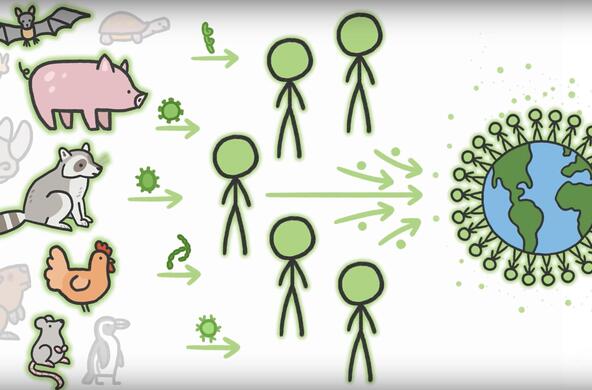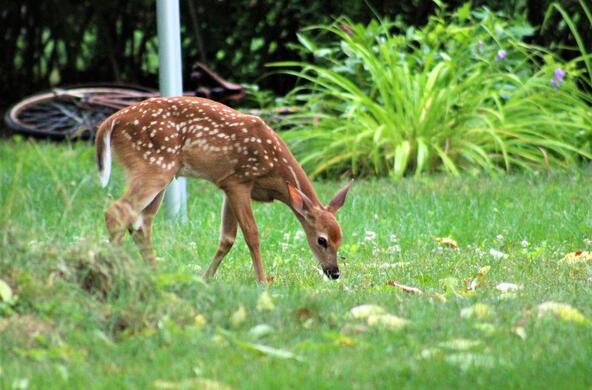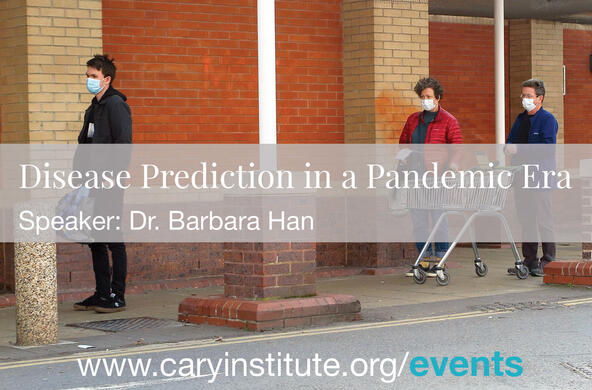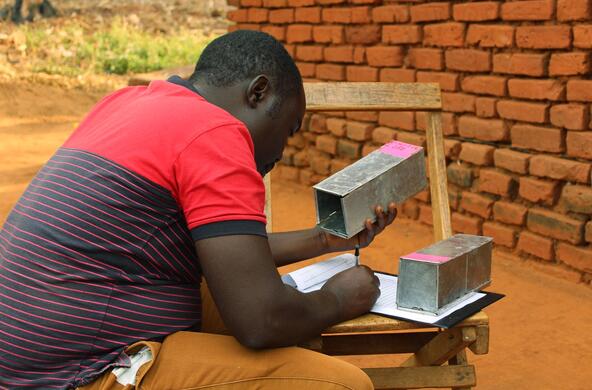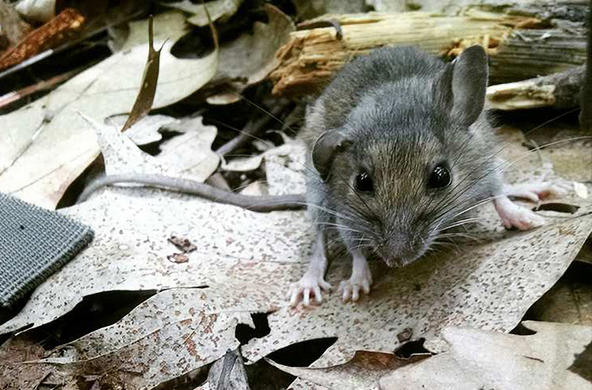
- Profile
- Videos & Podcasts
- Publications
- People
Barbara Han’s research is at the intersection of ecology, computing, and global health. Han has pioneered the use of machine learning and artificial intelligence tools to understand when and where new zoonotic diseases are likely to emerge, and why.
Han employs complex algorithms to analyze patterns and processes in nature that could result in the next Ebola, Zika, or SARS-CoV-2. Some of these models compare traits of known animal disease carriers — size, diet, reproductive habits, biogeography — with thousands of species not yet known to carry disease, in order to predict which animals might become disease carriers in the future, and where these emergence events are most likely to occur globally. Underlying these research topics is the creative application of AI and the co-development of new AI approaches that enhance prediction and infectious disease intelligence for stakeholders across disciplines.
Han’s research is actively contributing to a shift toward preemptive management for infectious disease spillover. This transformation could impact surveillance programs, global health preparedness efforts, and land management decisions, as it becomes obvious that diseases are more likely to emerge from certain habitats or in response to certain types of human behaviors.
Han is an interdisciplinary connector who routinely partners with diverse collaborators including scientists from IBM, NASA, and numerous national and international universities to advance research on global disease prediction. She contributes to efforts led by the World Health Organization, Coalition for Epidemic Preparedness Innovations, Wellcome Trust, and multiple US governmental agencies to apply this research to disease preemption. She is a member of the Board on Life Sciences at the National Academies of Sciences, Engineering, and Medicine, which provides guidance on life sciences-related issues to the US government and the public.

Dr. Adrian Castellanos is the data manager and spatial analyst in the Han lab, where he supports data visualization and scripting. He received his PhD in Wildlife and Fisheries Sciences from Texas A&M University working with Dr. Jessica Light. This work focused on how natural history collections can be used to examine patterns of biodiversity and biogeography in Central American mammals, highlighting the continued importance of specimen collection and data digitization. Although he identifies as a mammalogist, Adrian has also worked on birds, amphibians, orthopterans, and ticks with projects involving disease ecology, behavioral plasticity, morphological shape change, cryptic diversity, and species distribution and occupancy modeling. His research interests include improving species distribution modeling for conservation and biodiversity work, biodiversity informatics, and helping write and troubleshoot code.

Dr. July Pilowsky is a postdoctoral scientist in the Han lab, applying a process-explicit modeling approach to analyzing the ecology of infectious diseases and their hosts. They have a background in animal behavior, conservation biology, and ecological modeling. They received their PhD through a joint program between the University of Adelaide in Australia and the University of Copenhagen in Denmark, researching and developing process-explicit ecological models. They applied this technique to reconstruct the range collapses of the extinct steppe bison and the currently threatened European bison over tens of thousands of years. They have developed / co-developed two R packages for ecological modeling: colorednoise, which models temporal autocorrelation, and paleopop, which models species range dynamics over long timescales.


